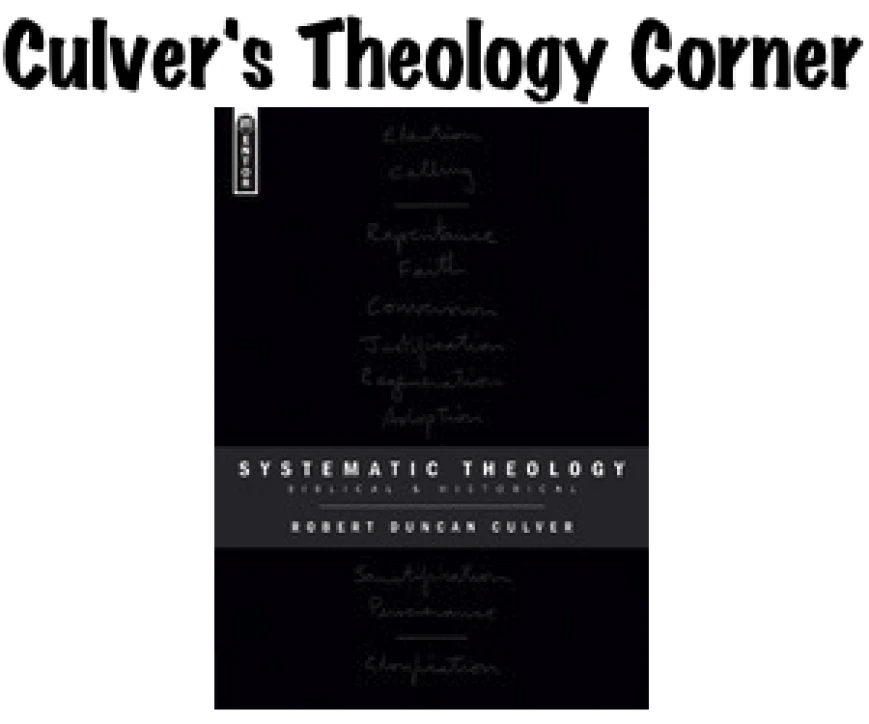Culver’s Theology Corner – The Origin and Unity of Mankind by Creation – Part 3
New Releases, Updates and More

The origins debate has received quite a bit of attention in recent months with the publication of Peter Enns’ The Evolution of Adam: What the Bible Does and Doesn’t Say about Human Origins (Brazos Press, 2012). In his magnum opus, Dr. Culver addresses many of the concerns raised by Enns and others taking part in the origins debate. Over the next few weeks, we will share a series of selections from Systematic Theology: Biblical and Historical focusing on the origin and unity of mankind by creation that will be helpful for those wanting to engage in the origins discussion. Part 3 follows below:
The Bible Does Not Affirm Either Mediate or Immediate Creation. Hence if Bible language regarding the divine creation of Scripture by command, breath and speaking, when many years, human agents and material means were required, then when the same sort of language is used of creation of people and things it is illogical in the extreme to exclude the possibility of agents, materials and time. It may all have occurred by instantaneous events of coming into existence but the language of Scripture cannot be compelled to convey that meaning. These details are god's business. He has seen fit not to reveal a smidgen of information about it. Certain scientists may suppose a big bang origin of matter and certain Bible interpreters may suppose a similar big bang origin for everything created by God, but the language of Scripture, understood in the Sitz im leben of Bible times and peoples does not support them. The creation of mankind is, like the feeding of the 5,000, the parting of the Jordan and the widow's flour bin, a miracle. We know nothing for certain now about how God did it. It is unlikely either the 'creation scientists' or the scientism of the universities of today will ever tells us.
Excerpted from Systematic Theology: Biblical and Historical by Robert Duncan Culver (Mentor, 2005).
Part 1 of this blog post series can be found here: LINK. Part 2 of this blog post series can be found here: LINK.
Where to Buy:
Systematic Theology: Biblical and Historical is available at any good Christian bookstore. If you don’t have a Christian bookstore near you, you may want to consider purchasing a copy from one of the online book retailers listed below:
Buy Now: Christian Focus, Amazon, Barnes & Noble, 10 of Those, ChristianBook.com, and many other good bookstores and online retailers
